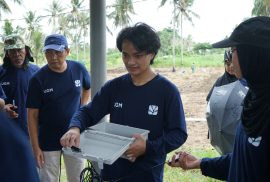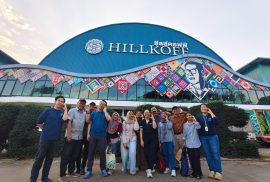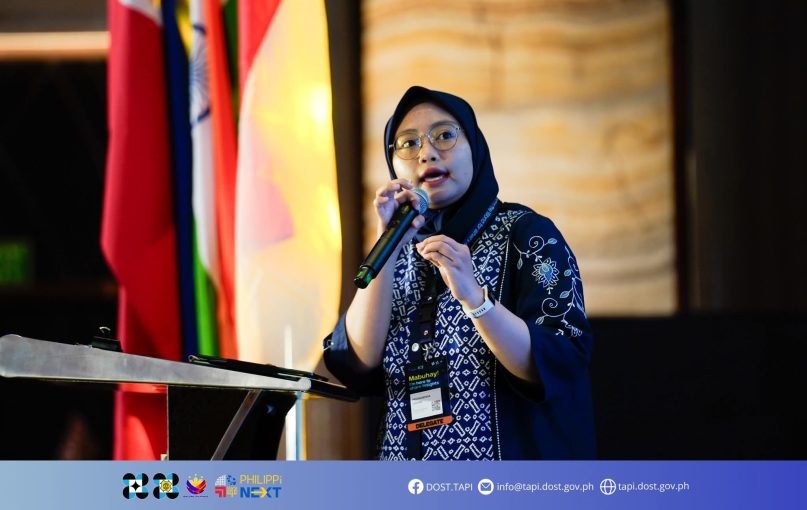
Dr. Prieskarinda Lestari, S.T., an assistant professor in the Department of Agricultural and Biosystems Engineering, Faculty of Agricultural Technology, Gadjah Mada University, received an invitation and valuable opportunity to be a keynote speaker at the International Conference on the Commercialization of Intellectual Property Assets (ICE on I) and PHILIPPiNEXt: Philippines’s International Exposition of Technologies 2025. The conference was held from July 14 to 17, 2025, at Okada Manila, Philippines. This event was jointly organized by the Asian and Pacific Centre for Transfer of Technology (APCTT) – United Nations Economic and Social Commission for Asia and the Pacific (UN ESCAP), and the Department of Science and Technology, Technology Application and Promotion Institute of the Philippines (DOST – TAPI).
Intellectual Property Rights (IPR) play a crucial role in economic growth, especially in developing countries, by enhancing innovation and technology, attracting investment, increasing income and industry, and fostering international trade. Therefore, the commercialization of intellectual property rights (IPR) is crucial for unlocking the potential of IPR assets to significantly contribute to economic growth, innovation, technology, investment, global competitiveness, and support sustainable development (Sustainable Development Goals).
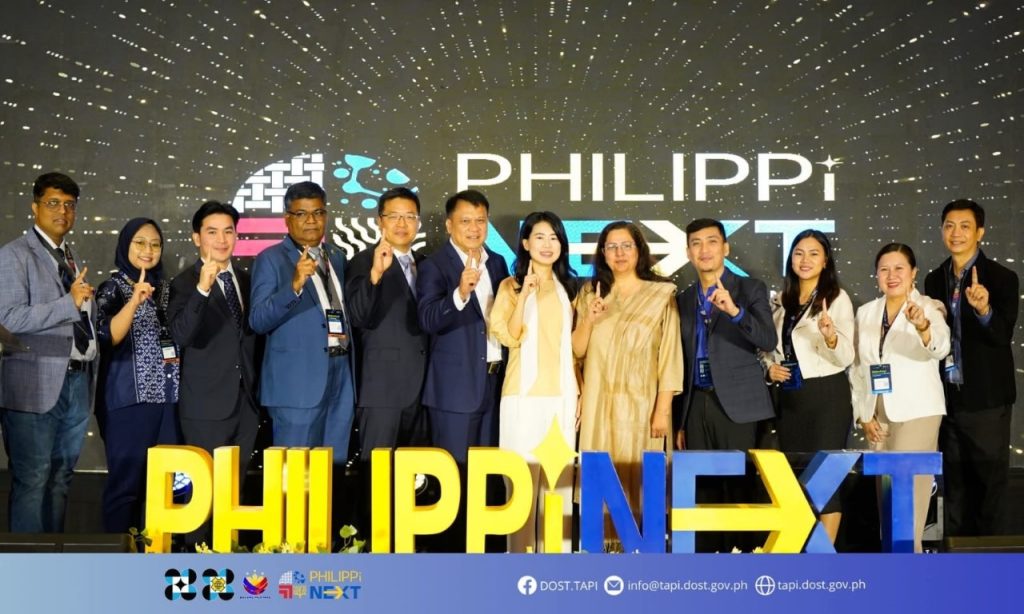
ICE on I & PHILIPPiNEXt 2025 serves as a crucial platform to support the commercialization of IPR and its technologies through cross-border networking and collaboration, including innovative technologies from the Philippines and the Asia-Pacific region. This aims to foster a collaborative ecosystem for the promotion and utilization of IPR, provide a space for innovators from the Asia-Pacific region to showcase innovative technologies, and explore and strengthen opportunities for cross-border collaboration.
On day 2 (July 18, 2025), the third session of the conference addressed the theme: “Intellectual Property to Increase Adaptive Capacity? Shifting the Focus on the Climate Action Sustainable Development Goals.” The session was opened by Dr. Preeti Soni, Head of APCTT UNESCAP, with her presentation entitled Putting SDG 13 in the Spotlight: Building Climate Resilience and Fostering Innovation in the Asia-Pacific. Dr. Preeti conveyed the importance of progressing SDG 13 (climate change mitigation) to encourage innovations in the Asia-Pacific region, especially through regional-international collaboration to create climate-smart resilience. Through APCTT, technology transfer and innovation must always prioritize climate change mitigation. This can be done through a strategic plan by increasing collaboration for the adoption, diffusion, and transfer of technology and innovation, to support politics & policies, human resource capacity building, and knowledge management in the Asia-Pacific region to address climate change and support sustainable development. The session was continued by Prof. P. Abdul Salam – Dean, School of Environment, Resources, and Development – Asian Institute of Technology, Thailand, with a presentation on Putting SDG 13 in the Spotlight: Innovations for Climate Action and Resilience. Prof. Salam explored various trends in innovation and technology development in the field of Climate-Smart Agriculture in the Asia-Pacific region.
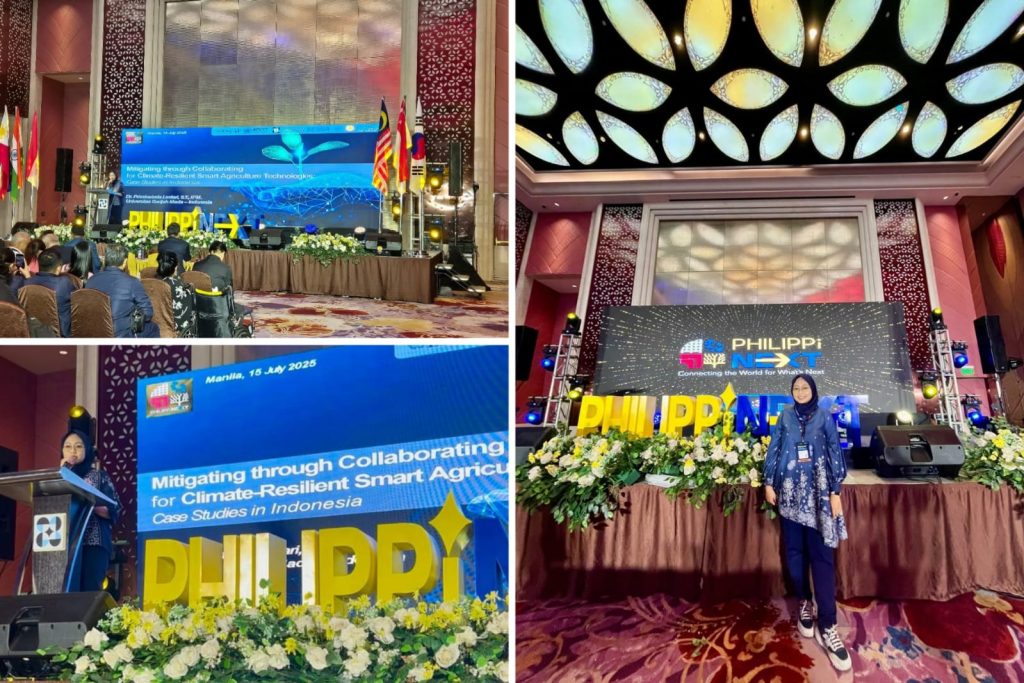
In the same session, Dr. Prieskarinda Lestari had the opportunity to present entitled Mitigating through Collaborating for Climate-Resilient Smart Agriculture Technologies: Case Studies in Indonesia. This presentation emphasized the importance of climate change mitigation through collaboration in realizing Climate-Resilient Smart Agriculture and Technology in the form of climate change adaptation initiatives in the agricultural sector, challenges in balancing mitigation with agricultural growth, supporting policy frameworks, and strategies for increasing resilience through climate-smart agricultural technologies. Several important discussion points presented were 1) Agriculture and its Challenges to Sustainable Development, 2) Climate-Smart Agriculture (CSA), 3) Innovation and Technology Related to CSA, especially promoting several innovations from the Smart Agriculture Research Center, 4) Two Case Studies in Indonesia, Partner Collaboration, and Potential IPR, 5) Important Lessons Learned Through Comparative Studies Based on CSA Experiences in Thailand and China, and 6) Follow-up Strategies and Actions. The first case study presented was entitled Enabling Sustainable and Climate-Smart Agriculture in Indonesia through Mechanization Solutions for Integrated Management of Straw Residue, which was the result of a collaboration between DTPB UGM and the Center for Sustainable Agriculture Mechanization (CSAM) – UN ESCAP. The second case study presented was entitled Climate-Smart Agrotourism-based Net Zero and BCG Economy of Sambak Village, Magelang Regency, Central Java, which is a collaboration between DTPB UGM and Yanmar Environmental Sustainability Support Association (YESSA) – Japan and the Regional Government. As a comparison, the Implementation of CSA in Thailand and China was also presented to increase collaboration and initiatives in mitigating and building resilience to climate change while optimizing agricultural productivity in maintaining food security and environmental sustainability. The session was closed by a presentation by Mr. Gene Kim – Karisma LLC, USA, on “IP Assets Maximized, Climate-Smart Innovations Commercialized,” which emphasizes the importance of commercialization of IPR based on CSA innovation, strategic approaches, and IPR protection efforts to support sustainable development in the technology market.
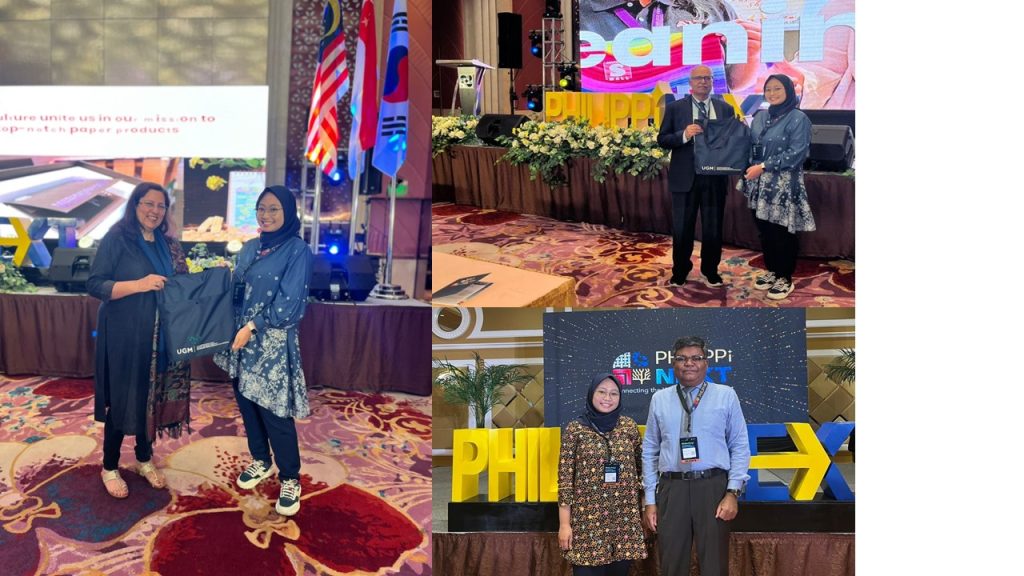
On the third day of the conference, the series of events continued with a Roundtable Discussion/International Dialogue and Presentation, which served as a forum for the exchange of ideas and focused discussions between local and international participants. Through this forum, innovators from member countries participating in PHILIPPiNExT presented their innovative technologies while sharing practical experiences in the development and commercialization process. In addition, invited participants also had a special opportunity to share their most valuable insights and key points gained from previous conference and expo sessions.
The conference also provided an opportunity for a field visit to strategic facilities owned by the Philippine Government that play a crucial role in disaster mitigation and environmental sustainability efforts. The visit included the Weather & Flood Forecasting Center (WFFC) of the Philippine Atmospheric, Geographical and Atmospheric Services Administration (PAGASA), which monitors and predicts weather conditions in real time and mitigates flooding. The visit continued to the Philippine Nuclear Research Institute (PNRI), showcasing innovations and technologies focused on waste-to-resources, climate change mitigation, environmental protection, and the circular economy implemented in the Philippines, including environmentally friendly technologies developed collaboratively to support sustainability in the Asia-Pacific region.
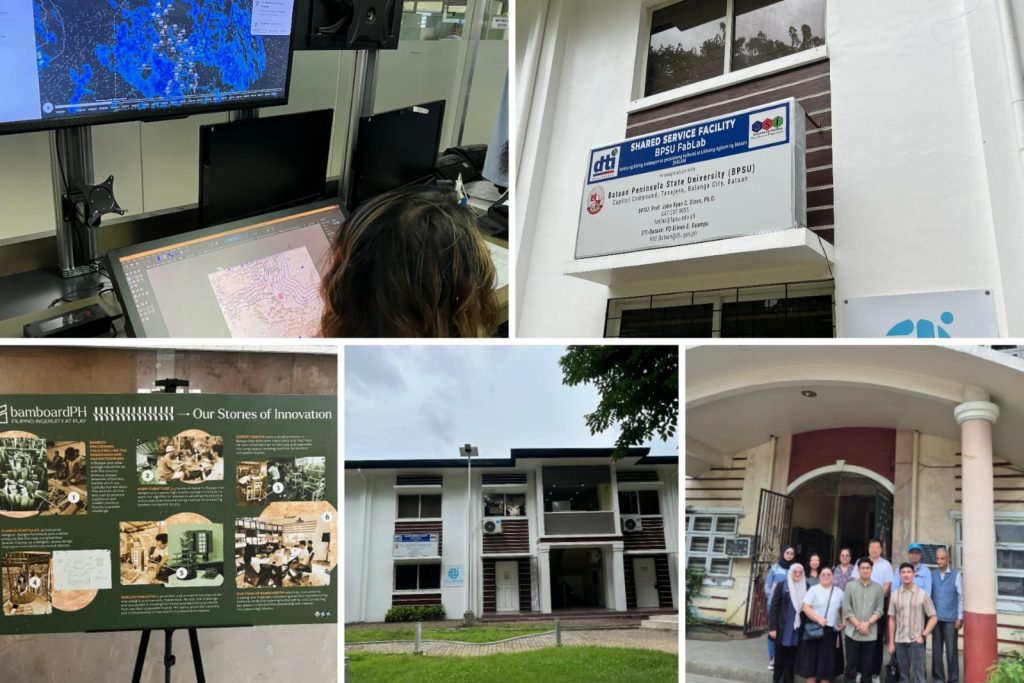
The final visit took place at the College of Engineering and Architecture, Bataan Peninsula State University. Several environmentally friendly circular economy-based technological innovations focused on waste-to-resources were presented, including innovation development efforts through the establishment of a learning center based on intellectual property rights (IPR) potential and dedicated mentoring and coaching for students.
This activity is an important step and a valuable opportunity for DTPB FTP UGM to gain international recognition and open up opportunities for international collaboration, particularly in the field of CSA-based research and innovation. This activity makes a significant contribution to the Sustainable Development Goals (SDGs), particularly in achieving SDG 4 (Quality Education), SDG 5 (Gender Equality), SDG 13 (Climate Action), and SDG 17 (Partnerships for the Goals).


